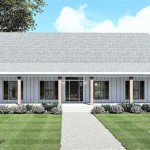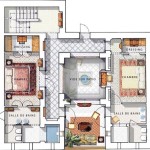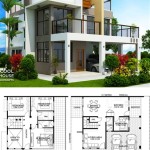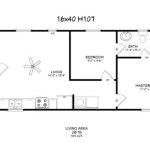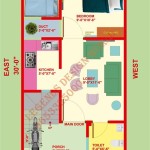Unveiling the Essential Aspects of Open Plan Home Plans: A Comprehensive Guide
Open plan home plans have gained immense popularity in recent years, offering homeowners a sense of spaciousness, flexibility, and seamless flow between different living spaces. These plans are characterized by the absence of traditional walls or partitions, creating a unified and inviting atmosphere. However, designing an open plan home requires careful consideration of essential aspects to ensure functionality, comfort, and aesthetic appeal.
1. Spatial Planning and Zoning
Effective open plan designs involve a well-structured zoning system that divides the space into designated areas for different functions, such as cooking, dining, living, and work. It's crucial to create clear boundaries and define each zone without resorting to physical partitions. This can be achieved through subtle elements such as changes in flooring, lighting, or furniture arrangement.
2. Natural Light Maximization
Open plan homes rely heavily on natural light to create a sense of airiness and avoid making the space feel cramped. Ample windows and doors should be incorporated to allow natural light to flood in and connect the interior to the outdoors. Consider skylights or large windows to enhance light distribution throughout the space.
3. Functional Flow and Circulation
Open plan designs emphasize seamless flow and circulation between different zones. The layout should allow for easy movement and access to all areas without creating bottlenecks or obstructing traffic. Wide walkways and well-placed furniture can facilitate smooth transitions between spaces and ensure that the home feels both spacious and user-friendly.
4. Visual Harmony and Coherence
While open plan designs embrace fluidity, it's essential to maintain visual harmony and coherence throughout the space. A consistent color palette, cohesive design elements, and a balanced distribution of furniture can create a unified aesthetic that complements the open and flowing nature of the plan.
5. Acoustic Considerations
The absence of physical barriers in open plan homes can lead to acoustic challenges. To ensure comfort and privacy, it's important to consider acoustic treatments such as sound-absorbing materials, rugs, and drapes. These measures can reduce noise pollution and create a more peaceful and enjoyable living environment.
6. Ventilation and Air Circulation
Proper ventilation is essential to maintain a healthy and comfortable indoor environment in open plan homes. Strategically placed windows, cross-ventilation, and mechanical ventilation systems can ensure adequate air circulation and prevent the accumulation of stale air and odors.
7. Privacy and Personal Space
While open plan designs prioritize flow and connection, it's essential to consider privacy and the need for personal space. Designated areas or cozy nooks can provide a sense of retreat and sanctuary within the larger open space. Semi-transparent screens, curtains, or furniture arrangements can create visual barriers without sacrificing the open concept.
Conclusion
Designing an open plan home requires a thoughtful approach that balances aesthetics, functionality, and comfort. By carefully considering the essential aspects outlined above, architects and homeowners can create spacious, inviting, and harmonious living spaces that meet the demands of modern lifestyles.

Why Open Concept Floor Plans Because They Work

Open Floor Plans Build A Home With Smart Layout Blog Dreamhomesource Com

10 Small House Plans With Open Floor Blog Homeplans Com

Classic House Plans Open Floor

Open Floor Plans Creating A Breathable Livable Custom Home Builders Schumacher Homes

House Design Trends What S Popular In Cur Floor Plans Extra Space Storage

Your Open Concept Floor Plan Here S How To Fix It Laurel Home

9 Best Open Floor Plans For Ranch Style Homes Deepnot Log Home House

Floor Plan Friday 3 Bedroom Modern House With High Ceilings Open

10 Small House Plans With Open Floor Blog Homeplans Com



